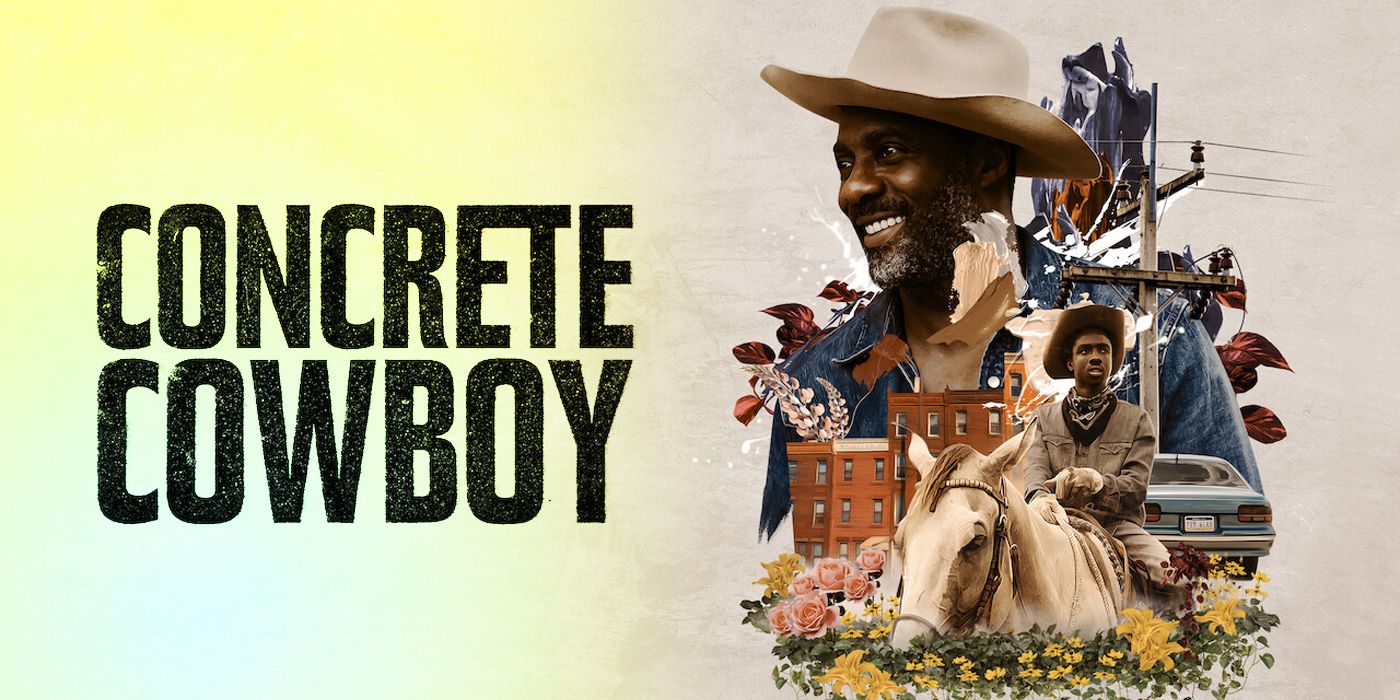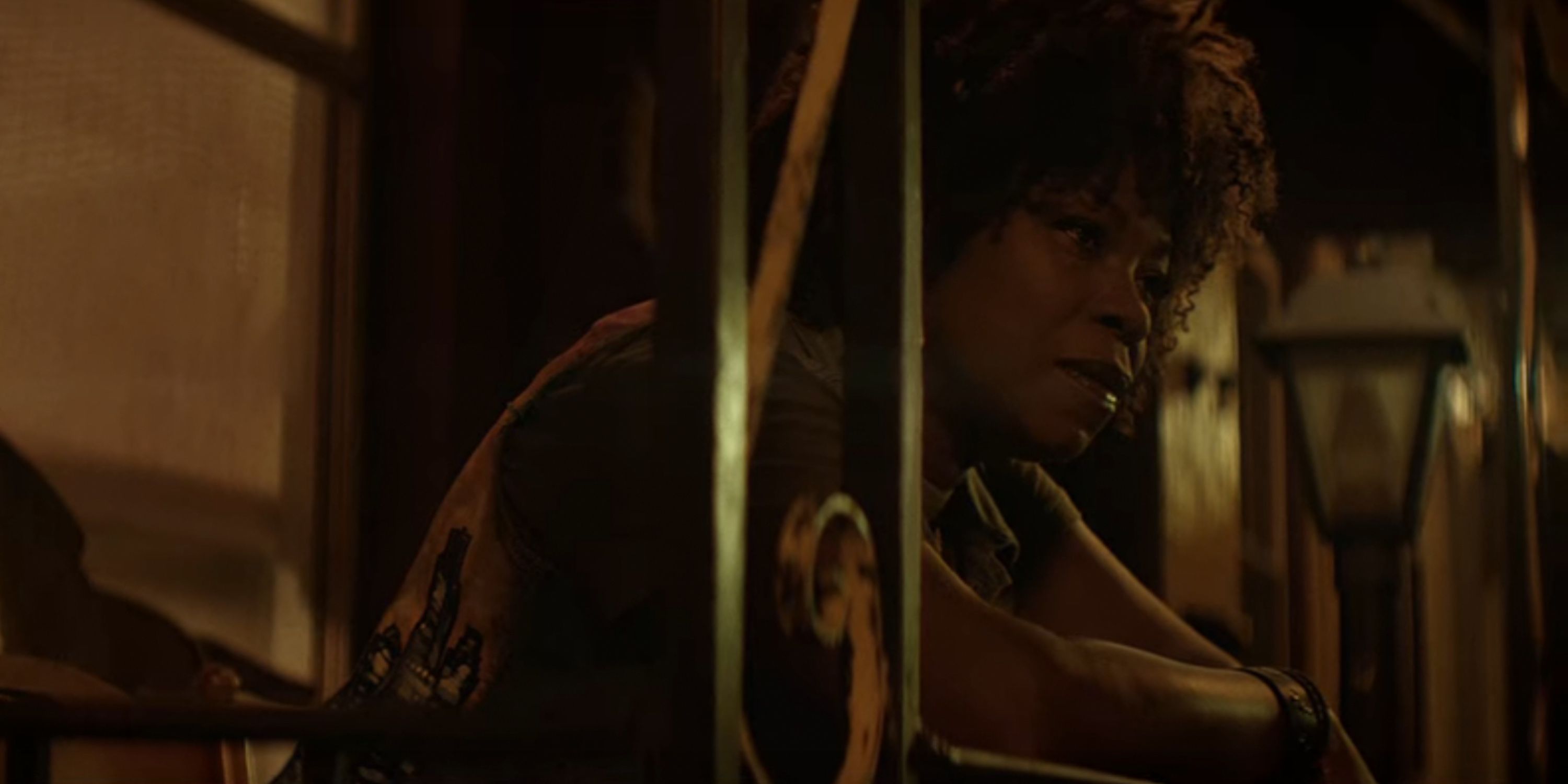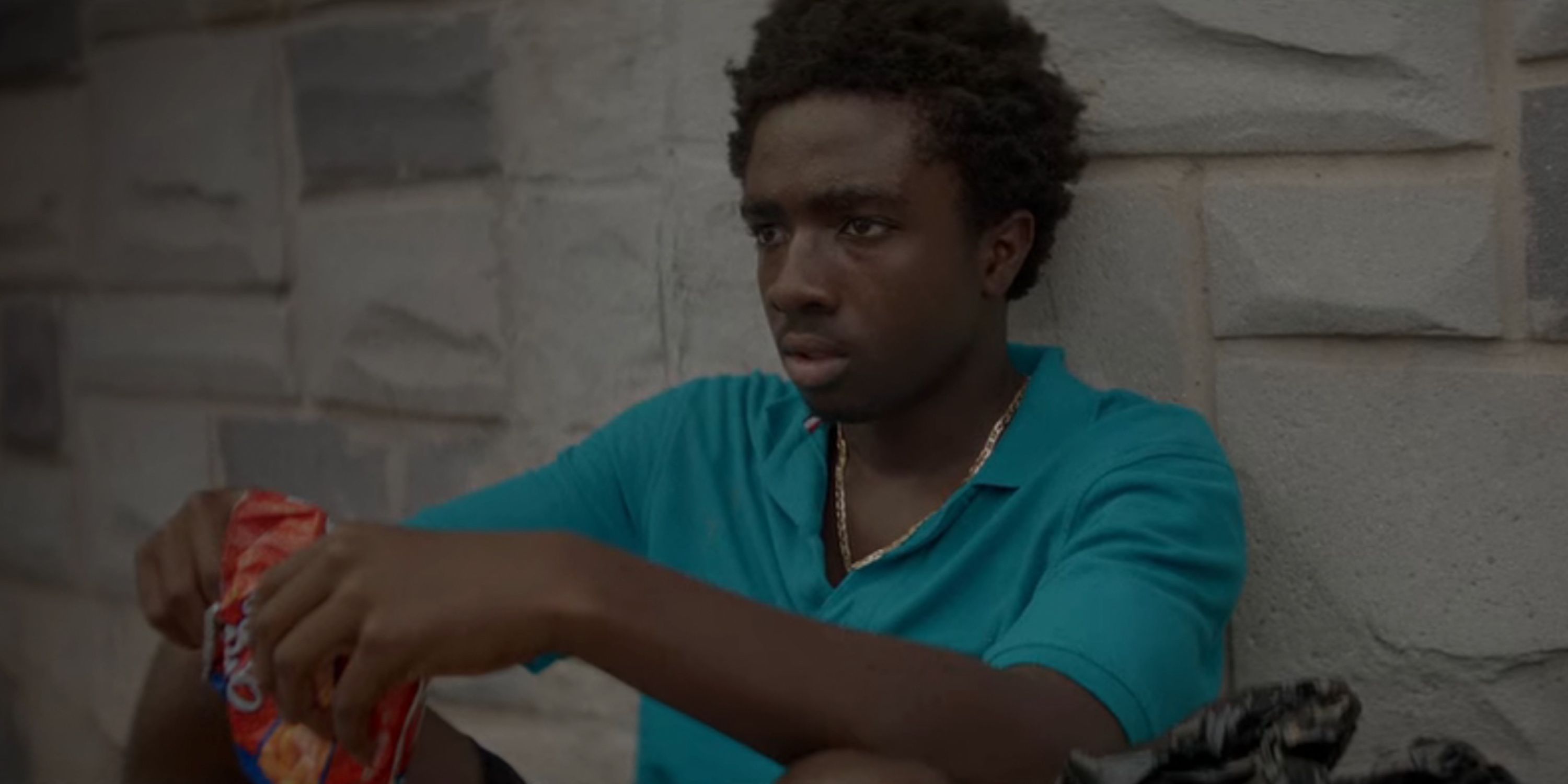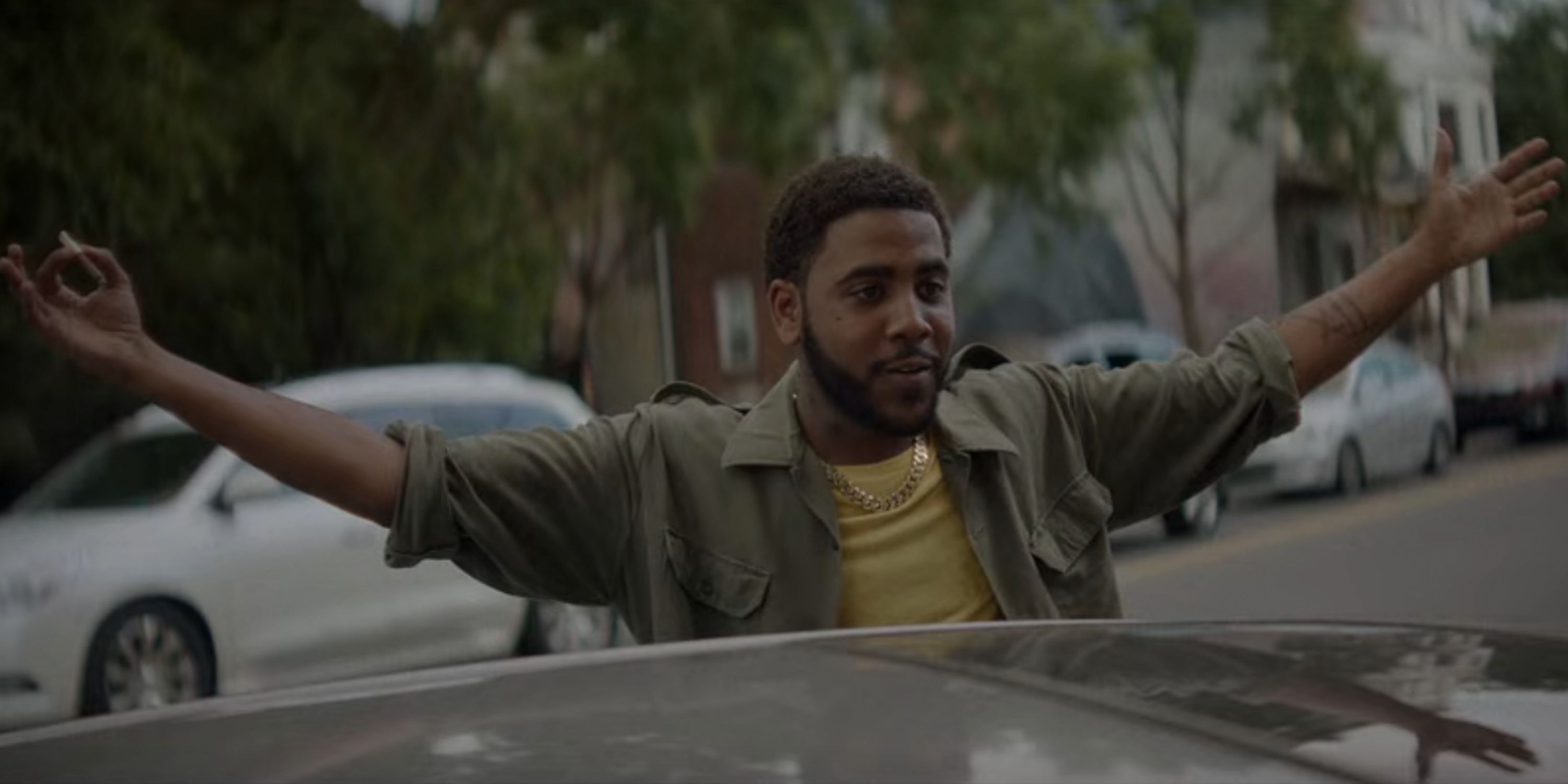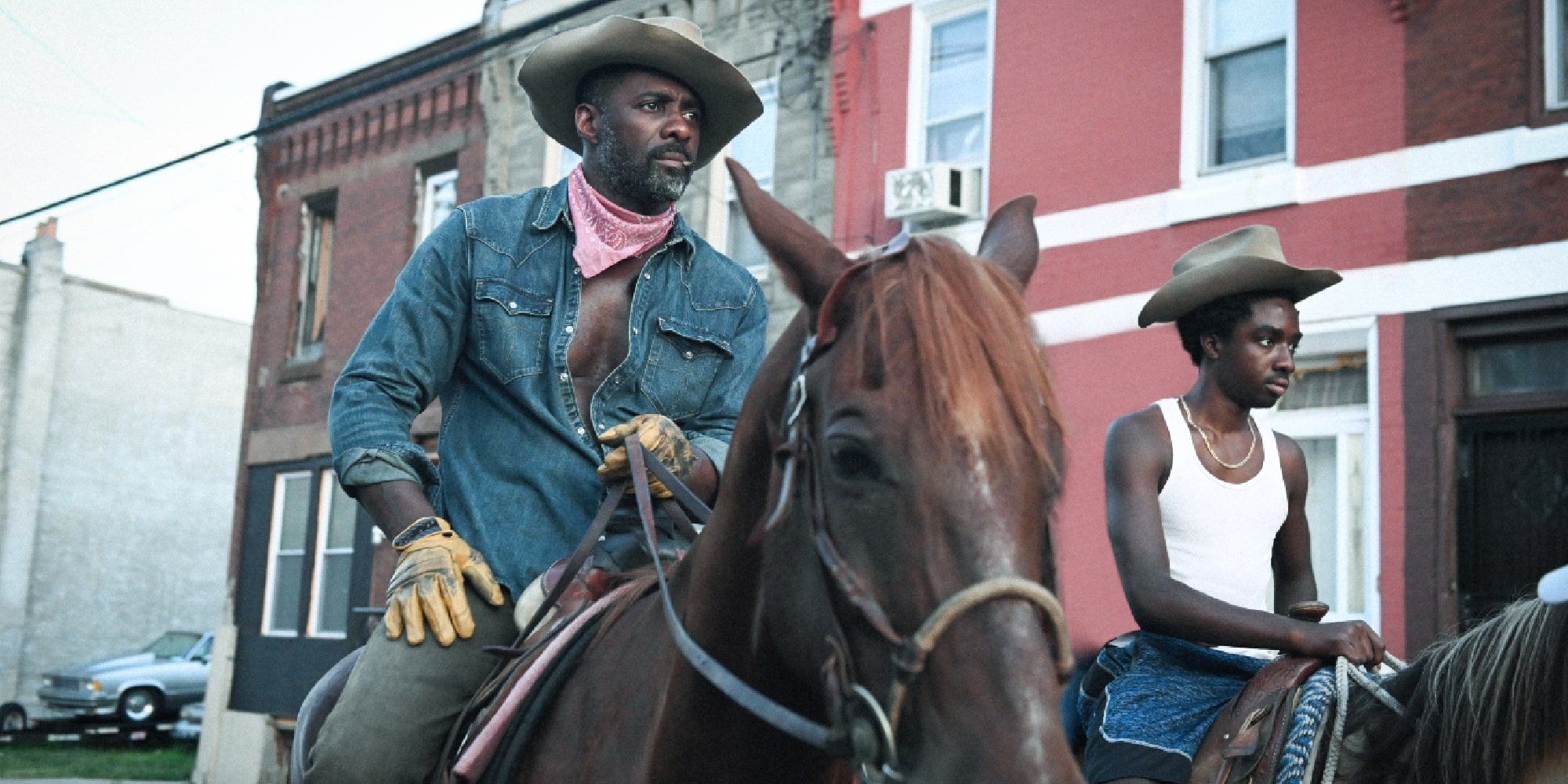In the ending of Concrete Cowboy, the movie's storylines are tied up very neatly, leaving very little to be explained. However, given the subtlety of the movie's ending, a few details deserve a bit more explanation than what is provided on film.
Concrete Cowboy is a coming-of-age movie about Cole (played by Stranger Things' Caleb McLaughlin), a troubled boy who goes to live with his urban horseback-riding father, Harp (Idris Elba), for the summer. And while the movie's primary plot follows Cole's growth and the development of his relationship with his estranged father, it also tells the story of their cowboy heritage and the continuing threats it faces from racism and gentrification.
Cole's mother fears he is on the wrong path in life at home in Detroit and hopes to steer him in the right direction by sending him to live with his father in Philadelphia. At first, they clash, with Cole seemingly determined to repeat the mistakes that Harp made in his youth, which bring him dangerously close to ending up either in jail or in the morgue. At the same time, they begin to bond, and Cole ends up finding value, direction, and ultimately a new family at the Fletcher Street Stables. Concrete Cowboy ends on a bittersweet note, reuniting father and son in the face of great loss. It is precisely this subtle dichotomy that could use a bit more explanation.
Are The Fletcher Street Stables Real?
It is no secret that Concrete Cowboy is based on a true story. The movie is an adaptation of Greg Neri's 2011 novel Ghetto Cowboy, which is, in turn, based on the real-life Fletcher Street Urban Riding Club in North Philadelphia's Strawberry Mansion neighborhood. Not only are the Fletcher Street Stables from Concrete Cowboy real, but the struggles the characters face in the movie are also real as well. For generations, real-life horseback riders of Philadelphia have struggled to preserve their lifestyle and heritage, which has been passed down for generations, and not just on Fletcher Street.
Much of the Philadelphia riders' struggle is due to racism, and as the characters in Concrete Cowboy mention, Black cowboys (or more correctly, Black cowhands) have been largely left out of history books and mass media. Real-life organizations like the Fletcher Street Urban Riding Club promote public understanding of the vast contribution Black cowhands have had and continue to have in communities all over the country. As a testament to this fact, a series of interviews during the end credits reveals that many of the actors in the film were actual members of Philadelphia's horseback-riding community.
Why Did Cole Grow Up Without Harp?
Throughout Concrete Cowboy, Cole makes many discoveries about himself, his father, and his heritage. He learns that domesticating a wild horse requires love, not domination. Likewise, he learns that this love comes in many forms and is not always easy. Despite his discoveries, Cole still feels unwanted by his father Harp, who seems more attached to his horses and his fellow riders than his son. However, when Cole threatens to run away, Harp reassures Cole of his feelings by recounting his bittersweet memory of Cole's birth. He also tells the story of Cole's namesake, legendary saxophonist John Coltrane, who was raised without a father and still became a great man.
Eventually, Concrete Cowboy reveals that Harp was estranged from his son because of the poor choices he made as a youth, not because of indifference. When Cole was born, Harp was already in trouble with the law and was facing a five-year prison sentence. (This is presumably why Cole's mother took him out of Philadelphia to Detroit.) As a result, Harp reluctantly chose to stay out of Cole's life in order to protect him from the consequences of his own shortcomings. Harp's naming Cole after Coltrane was as much a blessing as it was a promise to keep a safe distance. In essence, staying away was an act of love. This is evidenced by the fact that Cole's mother trusted Harp enough to drop her only son off in the middle of the night in an unfamiliar neighborhood.
Why Is Cole's Mother Crying At The End?
The final scene of Concrete Cowboy shows Cole's mother arriving at Harp's house, presumably at the end of the summer to bring her son back home. She cries and embraces Harp in a clear display of love for the man. Throughout the movie, it's not clear what the status of their relationship is, but this scene leaves no doubt. They still care for and love each other. At first it seems that Cole's mother is crying out of sadness — and she is, in part. Smush (Jharrel Jerome), a young boy much like her own son, was recently gunned down, she probably hasn't seen her son in months, and her community is being slowly dismantled. There is no doubt that her tears contain some sadness. However, her tears are also tears of happiness. She sees her son has become a man, and tells him that he looks good as a cowboy. It is a bittersweet reunion that underscores one of the movie's most important messages: Love comes in many forms.
What Is The Real Meaning Behind Concrete Cowboy?
The real meaning behind Concrete Cowboy is that growing up doesn't mean having all the answers; it means trusting in the answers you have. For Cole and the Fletcher Street riders, the answer is horses. By the end of the movie, Cole is on the cusp of understanding this, but it takes the sudden, violent death of his friend Smush, the imminent loss of the stables, and the threat of losing their horses for the lesson to really hit home. Cole finally realizes that he has to trust his father in order to accept his form of love, much like a wild horse needs to trust its handler.
In Concrete Cowboy, despite the incredible losses endured by the Fletcher Street riders, they persevere, but not because they have all the right answers. Instead, they persevere because they trust in their heritage, and more importantly, in each other. They may have lost the place that they call home, but they ultimately remind themselves that home is not a place—it's a family.

